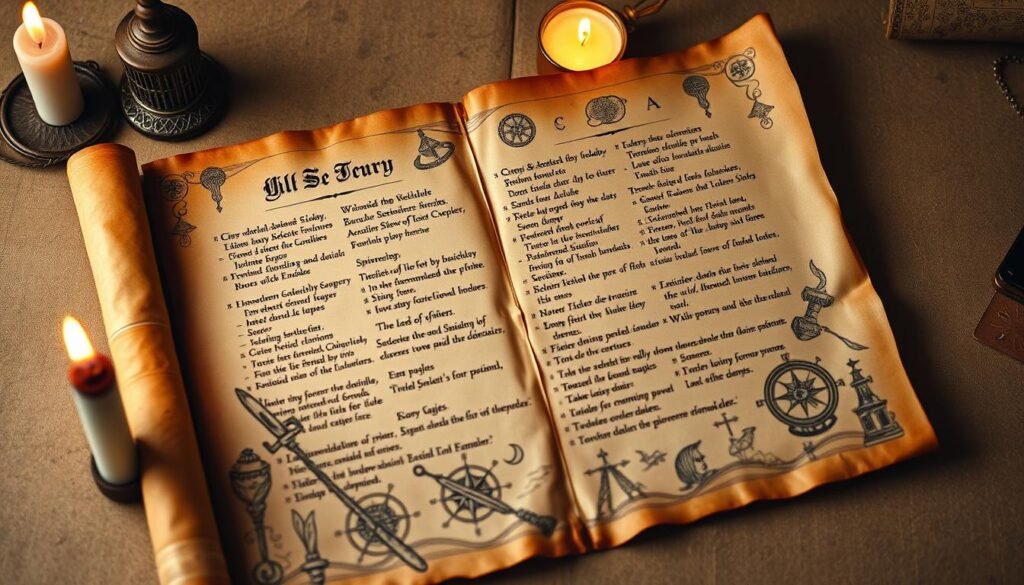Have you ever wondered about the origins of the word “travel”? The journey of this term traces back to the early days of the English language. The Old English word for travel is “faran,” which means “to go” or “to journey.” This term was commonly used from around 450 to 1100 AD, laying the groundwork for modern travel vocabulary.
Thank you for reading this post, don’t forget to subscribe!Understanding “faran” offers insights into how our ancestors viewed movement and exploration. Derived from Old French “travail,” meaning work or labor, “travel” initially signified a difficult or laborious journey. Over time, it evolved to encompass various modes of movement, from walking to air travel.
Exploring the roots of “faran” reveals how language shapes our perception of the world. It connects us to a past where every journey was an adventure, influencing how we describe travel today. Whether you’re a history enthusiast or a language learner, grasping the origins of “faran” enriches your understanding of travel’s cultural and linguistic significance.
Key Takeaways
- The Old English term for travel is “faran,” meaning “to go” or “to journey.”
- “Faran” was used from 450 to 1100 AD, forming the basis of modern travel language.
- The word “travel” originates from Old French “travail,” indicating laborious movement.
- Understanding “faran” connects us to historical travel perceptions and linguistic evolution.
- Exploring etymology enriches cultural and linguistic understanding for enthusiasts and learners alike.
Introduction to Old English Travel Vocabulary
Exploring the roots of Old English reveals a rich tapestry of words that shaped how early speakers described movement and exploration. These terms not only reflected the practical aspects of travel but also the challenges and emotions tied to it. Understanding this vocabulary offers a window into the past, showing how language evolved over time.
The Language Legacy of Old English
Old English, spoken from the 5th to the 11th centuries, laid the foundation for modern travel terminology. Verbs played a crucial role in describing journeys, with terms like “faran” (to go) and “līdan” (to travel) dominating the language. These words were often linked to hardship, as travel in those days was arduous and laborious.
For instance, “sǣ-lida” referred to sea travelers, highlighting the dangers and difficulties of voyages. Such terms emphasize how travel was not just physical movement but also an emotional and often perilous experience.
Relevance to Modern Travel Terminology
Despite the passage of time, the legacy of Old English travel words endures. Modern terms like “travel” trace their origins back to Old English and Old French, reflecting the linguistic evolution influenced by Norman Conquest. The connection between historical and contemporary language highlights how our ancestors’ experiences continue to shape our vocabulary.
Even today, words like “journey” and “adventure” carry echoes of their Old English roots. This linguistic continuity bridges the gap between past and present, reminding us of the enduring nature of travel as both a literal and metaphorical experience.
By examining Old English travel vocabulary, we gain insights into the lives of early English speakers. Their words paint a picture of a world where every journey was an adventure, filled with both hardship and discovery. This historical perspective not only enriches our understanding of language but also deepens our appreciation for the evolution of travel terminology.
what is the old English word for travel ,
The term “travel” has a fascinating history rooted in Old English and Old French. Renowned poets like those in Beowulf used terms that connected travel to hardship, reflecting the challenges of journeys in those times.
Etymological Insights Behind the Term
In Old English literature, words like “faran” (to go) and “līdan” (to travel) were common. These terms often linked travel to labor and hardship, as seen in the Old French word “travail,” meaning toil or suffering. Poets used these words to describe both noble and everyday journeys, highlighting the struggles faced by lords and common people alike.
The cultural backdrop of “old” England influenced the formation of these words. Country travel was depicted as perilous, with sea voyages being particularly dangerous. This linguistic evolution shows how early English speakers viewed travel as more than just movement—it was an adventure filled with challenges.
By examining scholarly resources and Old English texts, we gain insights into how “travail” and similar terms shaped the modern concept of travel. This etymological journey reveals a rich tapestry of language and culture that continues to influence how we describe travel today.
Etymology and Historical Usage of Travel Terms
La evolución de los términos relacionados con el viaje refleja una rica historia que abarca varios siglos. Desde sus raíces en el francés antiguo hasta su adaptación en el inglés moderno, estos términos han experimentado transformaciones significativas.
Orígenes en el francés antiguo, latín e inglés antiguo
El término “travel” se origina en el francés antiguo “travail,” que significaba trabajo o sufrimiento. Este término se integró al inglés medio como “travailen,” describiendo un viaje laborioso. Con el tiempo, evolucionó hasta convertirse en “travel,” reflejando no solo el esfuerzo físico sino también las dificultades emocionales asociadas con los viajes.
En el contexto histórico, el viaje estaba frecuentemente vinculado a la guerra y el trabajo. Los viajeros medievales enfrentaban peligros, y a menudo, su movimiento estaba relacionado con la huida de crímenes o conflictos. Esto se refleja en textos antiguos, donde los términos de viaje se entrelazaban con narrativas de supervivencia y resistencia.
Evolution a través del inglés medio y su uso literario
En el inglés medio, el término “travel” se convirtió en parte de un amplio listado de vocabulario crucial. Autores de la época utilizaban estas palabras para describir no solo movimientos físicos, sino también las luchas internas de los personajes. Por ejemplo, en obras literarias, el viaje era a menudo un símbolo de transformación personal y superación de adversidades.
La adaptación de términos del francés antiguo y el latín enriqueció el lenguaje del viaje. Con el paso de los siglos, estos términos evolucionaron, influenciados por eventos políticos y militares. Hoy en día, palabras como “journey” y “adventure” mantienen ecos de sus raíces históricas, conectando el pasado con el presente.
Al explorar los orígenes etimológicos, respondemos preguntas clave sobre cómo el viaje se relacionaba con el trabajo, la guerra y incluso el crimen. Estos contextos históricos nos ofrecen una perspectiva más profunda de cómo los términos de viaje se han desarrollado a lo largo de los siglos.
Glossary of Key Old English Travel Words
Understanding Old English travel terms offers a fascinating glimpse into the lives of early speakers. This glossary highlights essential words that shaped their view of the world and movement.
Core Vocabulary and Their Meanings
Here are key Old English terms that define travel concepts:
- Scīp (Ship): Central to sea journeys, reflecting the importance of maritime travel.
- Hūs (House): Represented the destination or shelter after a long journey.
- Here (Army): Often linked to military movements and organized travel.
- Līc (Body): Described physical endurance during travels, highlighting the bodily toll.
These terms, found in historical dictionaries, convey the challenges and societal structures of the time. They illustrate how early English speakers viewed their world and the role of travel within it.

By studying these words, we gain insights into the cultural and physical aspects of travel in Old English times. This glossary serves as a valuable resource for scholars and enthusiasts alike, preserving the linguistic heritage of a bygone era.
Travel in Historical Context: Hardships and Journeys
Travel in early times was more than just moving from one place to another. It was a challenging endeavor that reflected the social, economic, and legal frameworks of the era. Understanding the historical context of travel reveals how societies viewed movement and the obstacles that came with it.
Travel Difficulties in Antiquity and the Middle Ages
During antiquity and the Middle Ages, travel was fraught with danger. Routes were often unsafe, and travelers faced legal regulations that restricted their movement. For example, in medieval England, travelers needed special permits to move between regions, which were often tied to specific laws and administrative rules.
Economic burdens also played a significant role. Travelers had to pay taxes and tolls, which made long journeys expensive. This economic strain was particularly felt by common people, who had limited resources. The difficulties of travel were not just physical but also legal and financial.
Cultural and Economic Impacts on Journeys
Cultural and economic factors deeply influenced travel. In medieval England, for instance, trade routes connected communities, fostering economic growth. However, these routes also brought challenges, such as the spread of diseases and conflicts over resources.
Travel also had social implications. It connected different regions, spreading ideas and cultures. Yet, it also highlighted social divides, as access to travel was often limited to the wealthy. This duality of travel as both a unifying and divisive force is evident in historical records.
| Period | Description | Example |
|---|---|---|
| Antiquity | Travel was often linked to trade and migration, with routes connecting distant regions. | The Silk Road, a network connecting East and West. |
| Middle Ages | Travel was restricted by legal and economic barriers, with permits required for movement. | Medieval pilgrimages to holy sites in England. |
| Modern Era | Advancements in transportation eased travel, making it more accessible. | The development of railways in 19th-century England. |
By examining historical travel challenges, we gain insights into how societies functioned. The interplay of cultural, economic, and legal factors shaped travel experiences, influencing societal evolution. This historical perspective enriches our understanding of travel’s role in connecting and dividing communities.
Modern Reflections on Ancient Travel Terminology
The journey of language is a mirror of our shared human experience. Just as ancient travel terms like “faran” shaped early descriptions of movement, modern language continues to draw from these roots. Today, words like “train” reflect a blend of old and new, connecting past laborious journeys with contemporary commuting.
Latin, a classic language, influences contemporary travel narratives. For instance, the term “origin” often traces back to Latin roots, emphasizing the starting point of any journey. Similarly, the imagery of a “tree” symbolizes growth and branching paths, much like the evolution of travel terminology.
In modern storytelling, the role of a “woman” in travel narratives has grown significantly. Women now play central roles in shaping travel stories, blending personal “life” experiences with cultural exploration. This shift mirrors the historical transition from laborious journeys to more accessible travel.
As we explore these connections, it becomes clear that ancient travel terms continue to resonate in modern language. Whether through the efficiency of “train” travel or the enduring symbolism of a “tree,” the legacy of Old English and Latin endures, enriching our understanding of movement and exploration.

Integrating Old English Terms into Contemporary Dictionaries
Modern language learning tools are breathing new life into ancient vocabulary. By integrating Old English travel terms into contemporary dictionaries, learners gain a deeper understanding of linguistic evolution. This approach not only preserves history but also enriches current language use.
Using Glossaries for Language Learning
Glossaries play a vital role in making Old English accessible. Digital flashcards, like those from the University of St Andrews, offer interactive ways to study. These tools highlight how traditional methods can blend seamlessly with modern tech, creating engaging learning strategies. For instance, apps now let users explore terms like “faran” in a dynamic, hands-on way.
Enhancing Cultural Understanding Through Vocabulary
Learning these terms isn’t just about language—it’s about culture. Understanding the “rule” of linguistic evolution shows how words like “travel” have transformed over centuries. This journey reveals the “way” language adapts to societal changes. Even a small “payment” for premium tools can unlock deeper insights, making these resources more accessible with just a “hand” on your device.
These methods ensure that Old English terms remain relevant, connecting past and present. Whether through digital aids or traditional glossaries, the integration of these words continues to inspire new “travel also” experiences in learning and exploration.
Conclusion
In conclusion, the etymological journey of the word “travel” offers a fascinating glimpse into linguistic and cultural history. From its roots in Old English, the term has evolved, reflecting changes in society and technology. The concept of “word travail” highlights the connection between labor and movement, a theme present in both historical and modern contexts.
The study of Old English travel terms reveals a broader area of language learning and historical insight. By exploring these roots, we gain a deeper understanding of how early societies viewed movement and exploration. This knowledge not only enriches our appreciation of language but also bridges the gap between past and present.
As we continue to uncover the legacy of Old English, we are reminded of the importance of preserving linguistic heritage. Integrating ancient vocabulary into modern lexicons ensures that these historical gems remain relevant. Whether for scholarly research or personal enrichment, delving into the origins of travel terminology invites us to explore further, fostering a deeper connection with our shared human experience.

